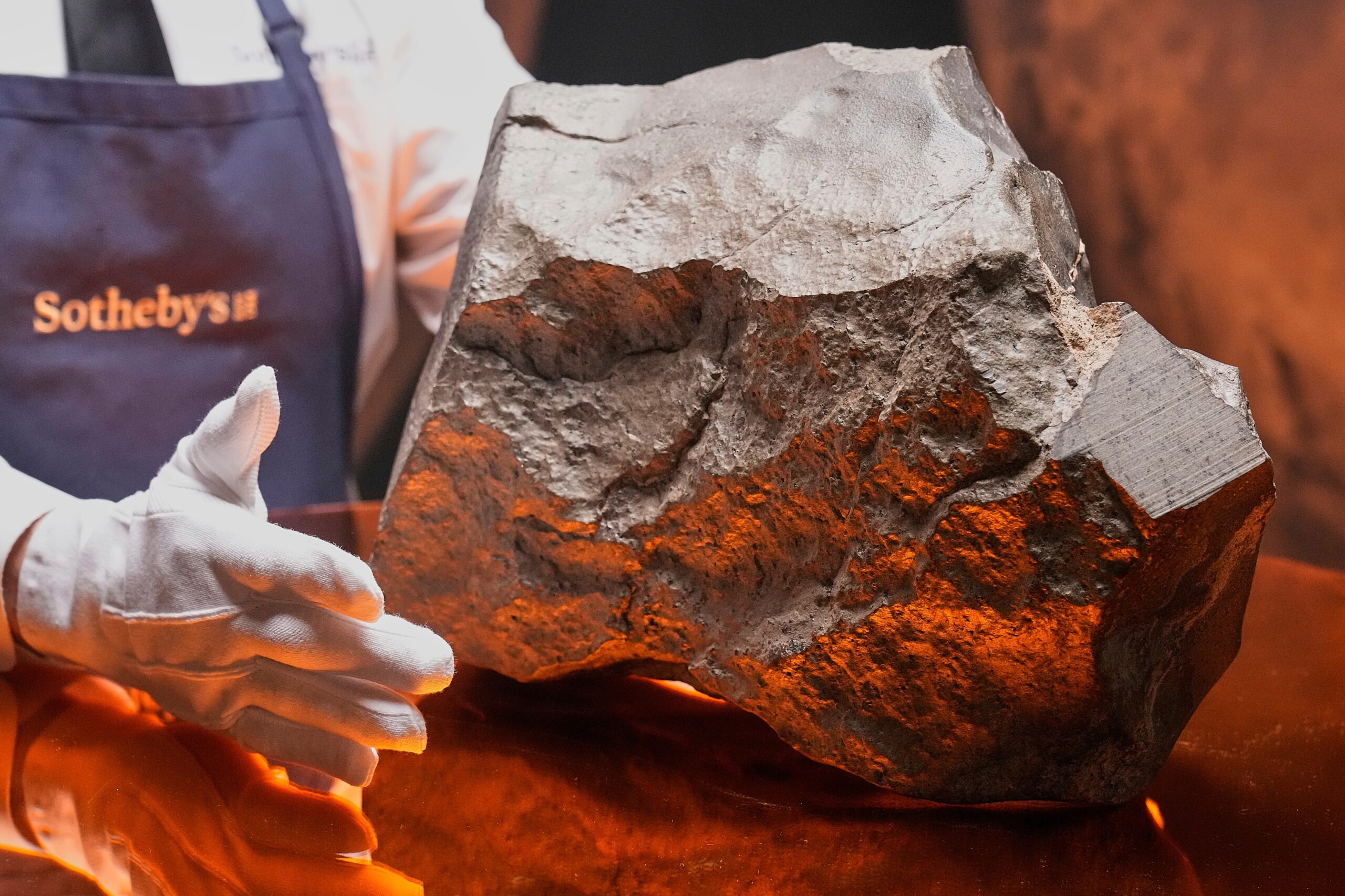The largest fragment of Mars ever discovered on Earth is a 54-pound (25-kilogram) meteorite that established a global record last month when it sold for over $5 million at an auction in New York.
The rusty-red rock was discovered in the Sahara Desert in the West African country of Niger, but authorities there have opened an inquiry into what they say is possible illegal international trafficking, suggesting that it may have been smuggled out of the country.
Suggested Videos
What you should know about the meteorite and the lawsuit is as follows:
How it was discovered
According to Sotheby’s, a huge asteroid hit blew the rock, known as NWA 16788, off the surface of Mars and it flew 140 million miles (225 million kilometers) to Earth.
According to the auction site, a meteorite hunter found it in November 2023 in the Sahara in northwest Niger. No one knew who he was. Last month, neither was the buyer’s identity.
In parched Saharan nations like Niger, meteorite hunting is becoming more popular. Despite the fact that meteorites can fall anywhere on Earth, the Sahara has emerged as a key location for their discovery, partly because of the environment that makes them ideal for preservation.
Hunters frequently look for space rocks to sell to scientists or collectors. The rarest and most valuable come from the moon and Mars.
The rock ended up in a private galley in Italy after being sold to a global dealer, according to the academic journal Heritage. According to the article, a group of researchers from the University of Florence studied the rock last year to find out more about its composition and origins before it fell to Earth.
Prior to its subsequent public appearance at the auction last month in New York, the meteorite was also temporarily on exhibit in Rome.
Why Niger is looking into
After the transaction, Niger questioned how the meteorite ended up on the auction block.
Last month, the government of Niger declared that it would launch an investigation to find out how the meteorite was found and sold, comparing it to illegal international trafficking.
In an attempt to guarantee their traceability, President Abdourahamane Tiani halted the export of meteorites, semiprecious stones, and precious stones nationwide last week.
The meteorite was exported from Niger and transported in accordance with all applicable international protocols, according to a statement sent to The Associated Press by Sotheby’s.
According to best practices and the regulations of the participating nations, all required paperwork was in order at every point of its voyage, just like with everything we sell,” the statement said.
Questions from the AP were not answered by Niger’s authorities.
What is stated by international law
According to Patty Gerstenblith, a cultural heritage attorney and specialist in illegal trading, rare materials such as meteorites may be considered cultural property under the UNESCO agreement on cultural property, which both the United States and Niger have ratified.
However, Gerstenblith stated that since the meteorite is not prohibited in the United States only because it was exported illegally, Niger must be able to demonstrate that it was the owner of the meteorite and that it was stolen.
It would not appear that Niger could retrieve the meteorite if it had not been stolen and had been correctly declared upon importation into the United States, she told the AP.
Paleontologist Paul Sereno, who has spent years discovering dinosaur fossils in Niger’s Sahara, is advocating for the return of meteorites and other natural and cultural artifacts.
“You cannot just come in and take something that is so unique and valuable to a country when you have laws that clearly say rare minerals like meteorites are cultural artifacts,” he told the AP.
He went on to say, “We’re just not in the colonial area anymore.”
If the objects are found on their soil, some nations, such as Morocco, one of the major suppliers of meteorites to the global market, demand restitution. However, the extensive desert regions and unofficial commerce networks have made enforcement difficult.








